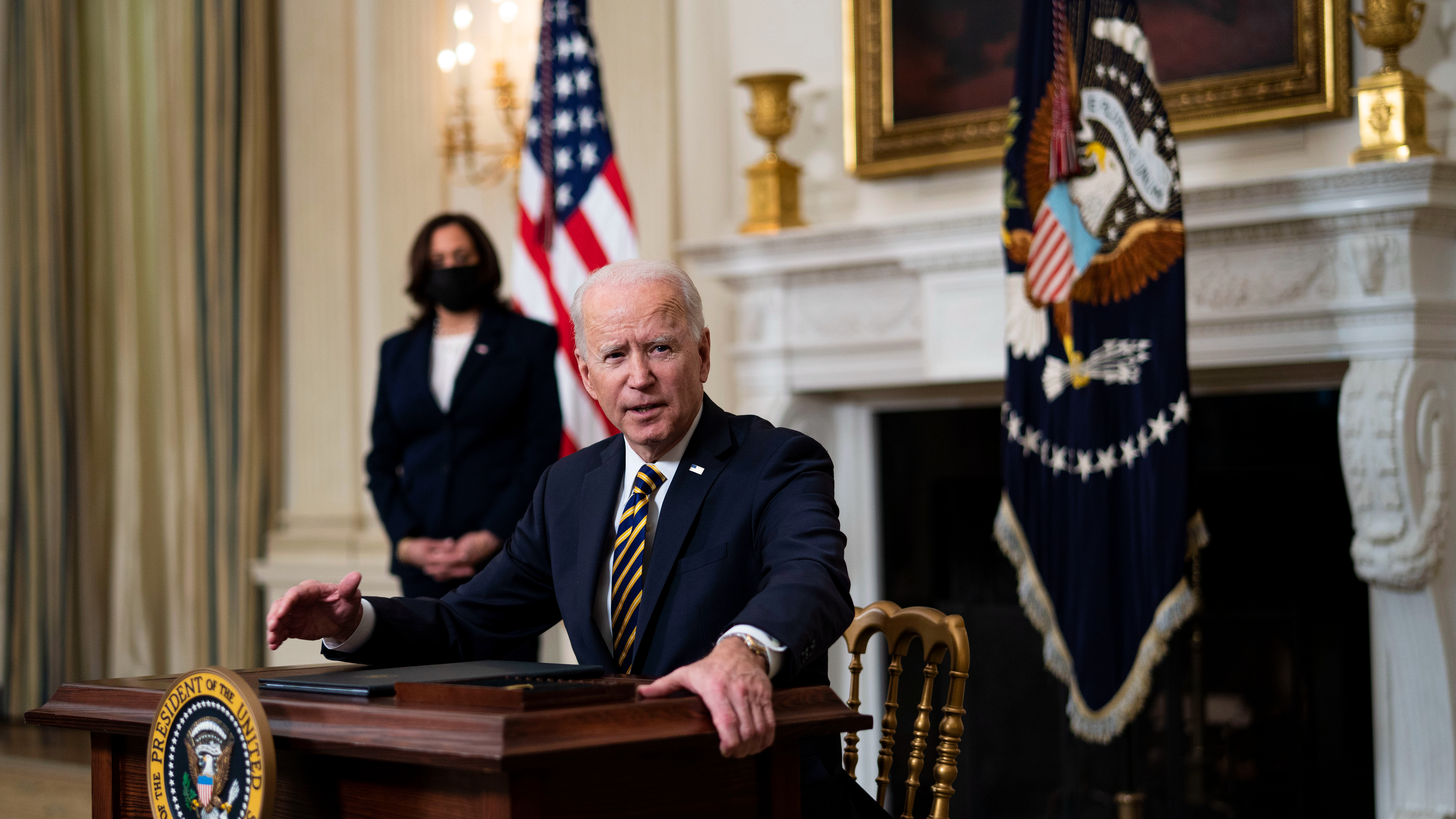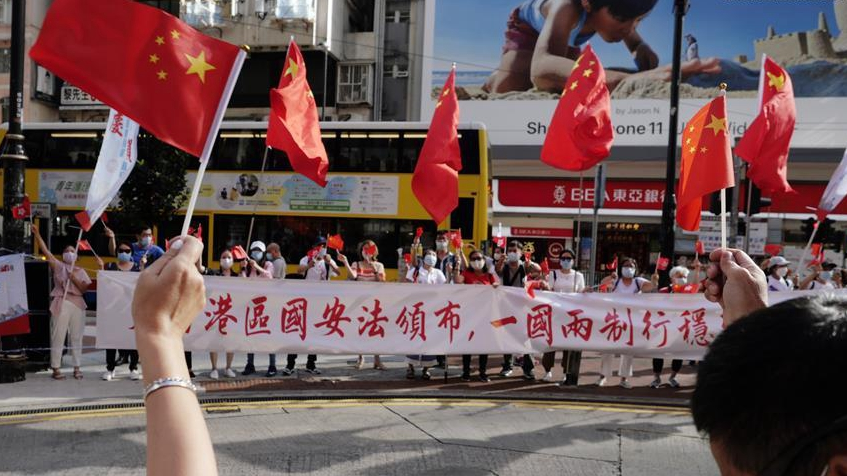
U.S. President Joe Biden signs an executive order on the economy in the State Dining Room of the White House in Washington, D.C., February 24, 2021. /Getty
U.S. President Joe Biden signs an executive order on the economy in the State Dining Room of the White House in Washington, D.C., February 24, 2021. /Getty
Editor's note: Bobby Naderi is a London-based journalist, guest contributor in print, radio and television, and documentary filmmaker. The article reflects the author's opinions, and not necessarily the views of CGTN.
U.S. President Joe Biden insists that he wants to return the United States to the international stage from which former President Donald Trump so catastrophically withdrew. His administration, however, has been refusing to take any significant steps toward that, principally with regard to China.
The Biden administration has now sanctioned an additional 24 Chinese officials over the national security law for Hong Kong that bans secession, subversion and collusion with foreign forces. The counterproductive and undiplomatic step came with trenchantly values-laden rhetoric on March 17 just ahead of U.S. Secretary of State Antony Blinken's meeting with top Chinese diplomats in Anchorage, Alaska.
Beyond the short-term frictional costs and transgressing of international norms, there is no real impact or value for the additional sanctions. Chinese officials dismiss the impact of symbolic sanctions on them. They call their designation a point of pride. In other words, the effectiveness of Washington's new sanctions is very much in doubt. They will fail to force a rollback of China's domestic policies.
The escalation of sanctions sets low expectations for bilateral talks, though. It undermines relations between the political classes on both sides of the Pacific. Biden has to decide whether he is willing to sanction an escalation in U.S. hostilities toward China. He also has to decide whether he wants to hold to the reflexive anti-China positions of his predecessor or put America's trade and business interests with China first.
It's not that hard for Washington to place a moratorium on sanctions and dial down its fundamentally antagonistic rhetoric over fake news and lies concerning China's domestic policies. The two largest economies in the world can always address their disagreements over trade and regional issues through dialogue. It serves no one's interests to take a tough line on these issues through sanctions diplomacy and in conjunction with declarative statements and emphatic rhetoric.

Hong Kong residents celebrate the passage of the Law of the People's Republic of China on Safeguarding National Security in the Hong Kong Special Administrative Region (HKSAR) in Causeway Bay, Hong Kong, south China, June 30, 2020. /Xinhua
Hong Kong residents celebrate the passage of the Law of the People's Republic of China on Safeguarding National Security in the Hong Kong Special Administrative Region (HKSAR) in Causeway Bay, Hong Kong, south China, June 30, 2020. /Xinhua
For all its fanfare, there are real reasons why when it comes to China, so far, the Biden administration continues on a familiar path.
Sanctions are supposed to offer the Biden administration the moral high ground and a much-needed upper hand in any high-level talks, as well as a diversion from domestic turmoil to validate political strength. The policy feeds into the wider strategy of containment, but the U.S. has achieved nothing in criticizing China's domestic policies for reassuring its political strength, or articulating its commitment to protecting the illicit interests of perceived allies in the South China Sea and the Taiwan Straits.
The Biden administration is using sanctions to discredit and interfere in China's domestic policies. Non-interventionism is a core UN Charter principle. The U.S. is obligated to respect China's sovereignty and political independence. It has no authority to intervene in matters which are within the domestic jurisdiction of China.
The principle of non-intervention protects China's sovereignty, political independence, and territorial integrity. Washington's claims about human rights and democracy have no legal standing and basis in Hong Kong and Xinjiang.
Washington frames China as a threat in order to force allies to support its trade, tech and economic wars. For instance, the additional sanctions were announced during a visit by Blinken and Defence Secretary Lloyd Austin to Japan and the Republic of Korea. While in Tokyo, they manufactured a joint statement with their Japanese counterparts to anger Beijing.
This is not to say that America's regional allies are really keen on sanctions escalating to a tipping point. With much trade and economic interest at stake, it's hard to see any of them ever commit to taking a tough line on China.
Biden administration's officials place sanctions at the center of diplomacy and use them as a tool in foreign policymaking. They use sanctions as a buffer in the hope of buying time and dictating trade and political relations during their meeting with Yang Jiechi, a member of the Political Bureau of the Communist Party of China (CPC) Central Committee and director of the Office of the Foreign Affairs Commission of the CPC Central Committee, and State Councilor and Foreign Minister Wang Yi.
Under international law, they can decide whether to reciprocate through equivalent sanctions, or to negotiate and expand the common ground. From experience, China always leaves room for diplomatic re-engagement, but it also wastes no time in reciprocating out of practical necessity.
Given the unprecedented level of interdependence and parity, the two major economic powers could still place a moratorium on sanctions to reset relations. To that end, the top Chinese and American officials are expected to use their considerable diplomatic power and influence to leave room for further diplomatic re-engagement after the Anchorage talks. This could include cooperation in other areas, such as combating climate change, ending the war in Afghanistan and containing the pandemic.
(If you want to contribute and have specific expertise, please contact us at opinions@cgtn.com.)

